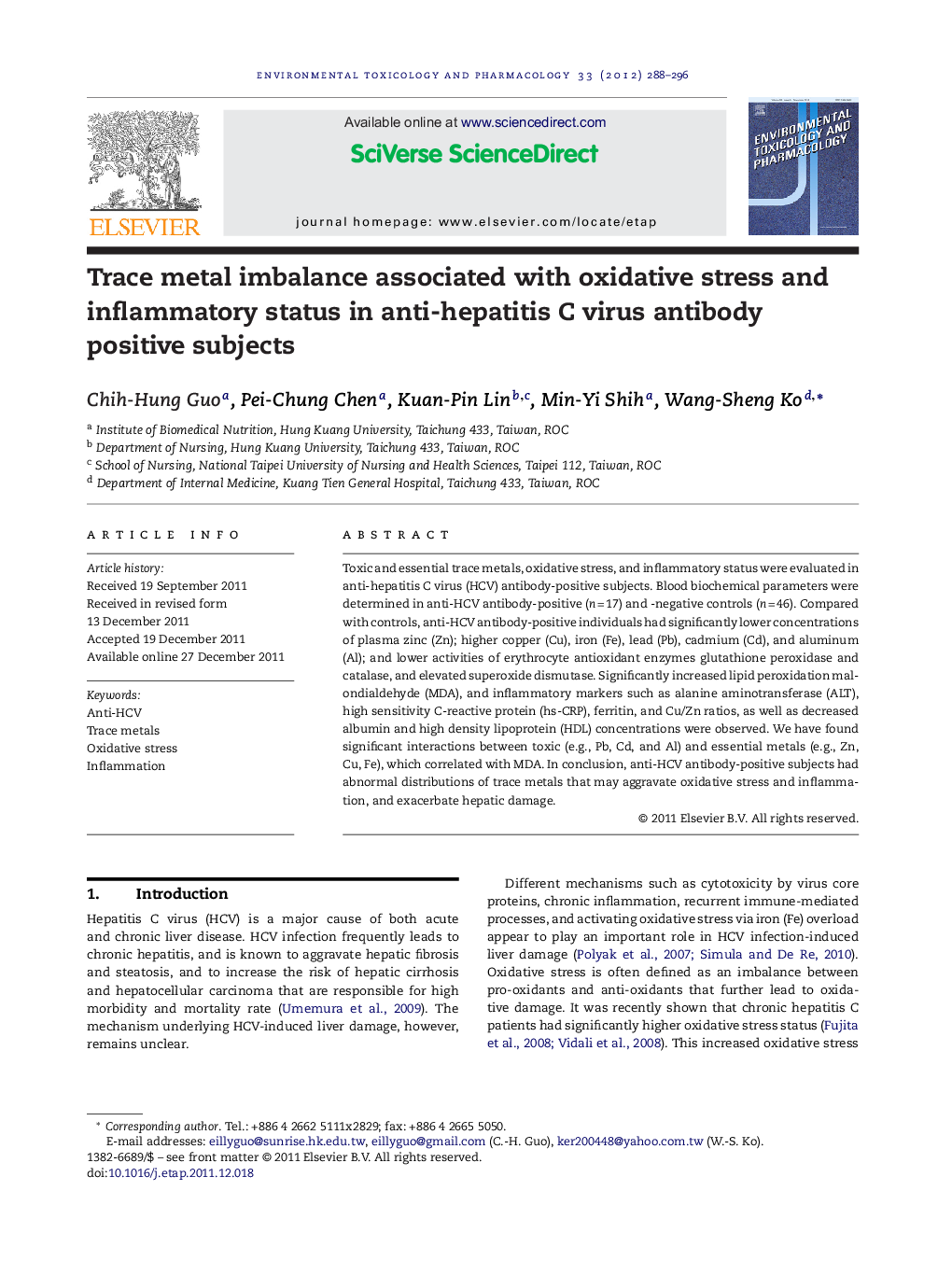| Article ID | Journal | Published Year | Pages | File Type |
|---|---|---|---|---|
| 2583518 | Environmental Toxicology and Pharmacology | 2012 | 9 Pages |
Toxic and essential trace metals, oxidative stress, and inflammatory status were evaluated in anti-hepatitis C virus (HCV) antibody-positive subjects. Blood biochemical parameters were determined in anti-HCV antibody-positive (n = 17) and -negative controls (n = 46). Compared with controls, anti-HCV antibody-positive individuals had significantly lower concentrations of plasma zinc (Zn); higher copper (Cu), iron (Fe), lead (Pb), cadmium (Cd), and aluminum (Al); and lower activities of erythrocyte antioxidant enzymes glutathione peroxidase and catalase, and elevated superoxide dismutase. Significantly increased lipid peroxidation malondialdehyde (MDA), and inflammatory markers such as alanine aminotransferase (ALT), high sensitivity C-reactive protein (hs-CRP), ferritin, and Cu/Zn ratios, as well as decreased albumin and high density lipoprotein (HDL) concentrations were observed. We have found significant interactions between toxic (e.g., Pb, Cd, and Al) and essential metals (e.g., Zn, Cu, Fe), which correlated with MDA. In conclusion, anti-HCV antibody-positive subjects had abnormal distributions of trace metals that may aggravate oxidative stress and inflammation, and exacerbate hepatic damage.
► Anti-HCV-positive individuals had lower plasma zinc, and higher copper, iron, lead, cadmium, and aluminum concentrations. ► Anti-HCV-positive had an imbalance of pro-oxidant/anti-oxidant system and inflammatory processes. ► Interactions between toxic and essential metals may further contribute to oxidative damage and inflammation.
